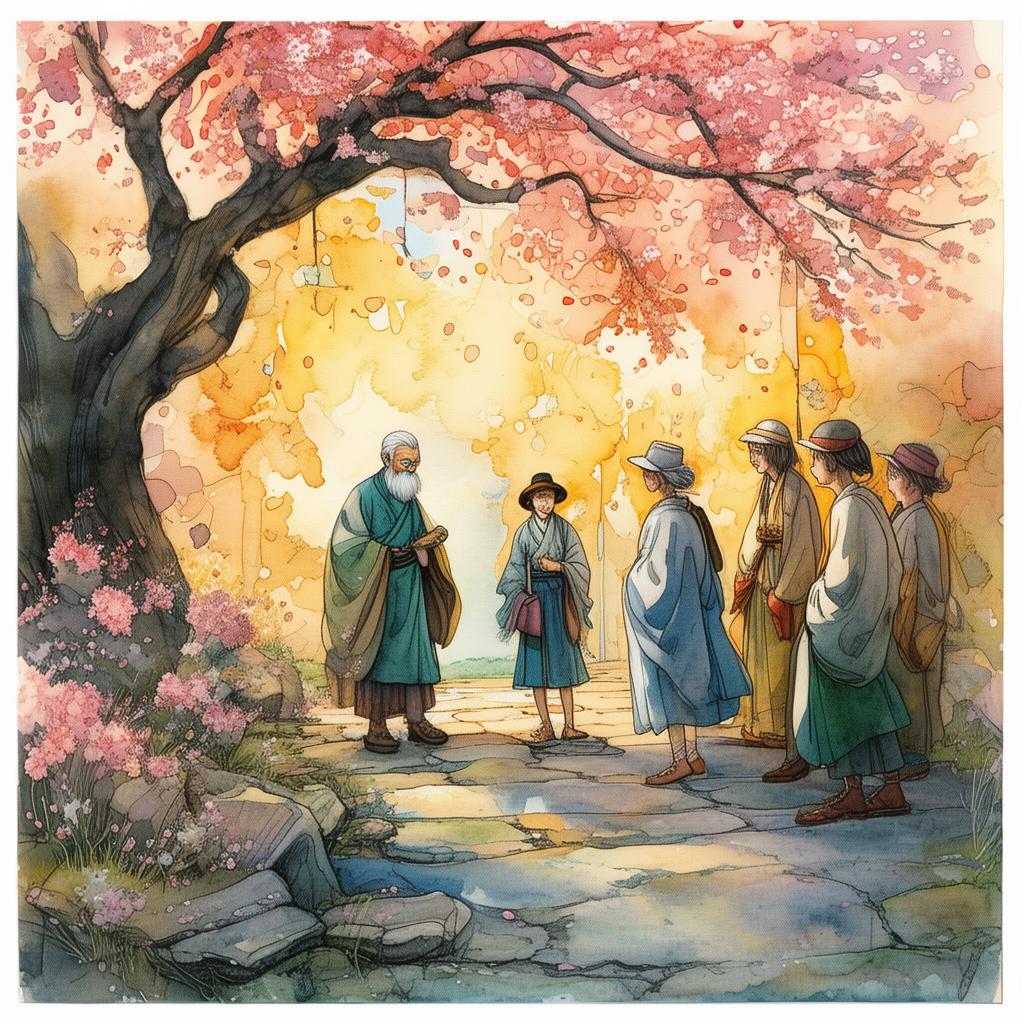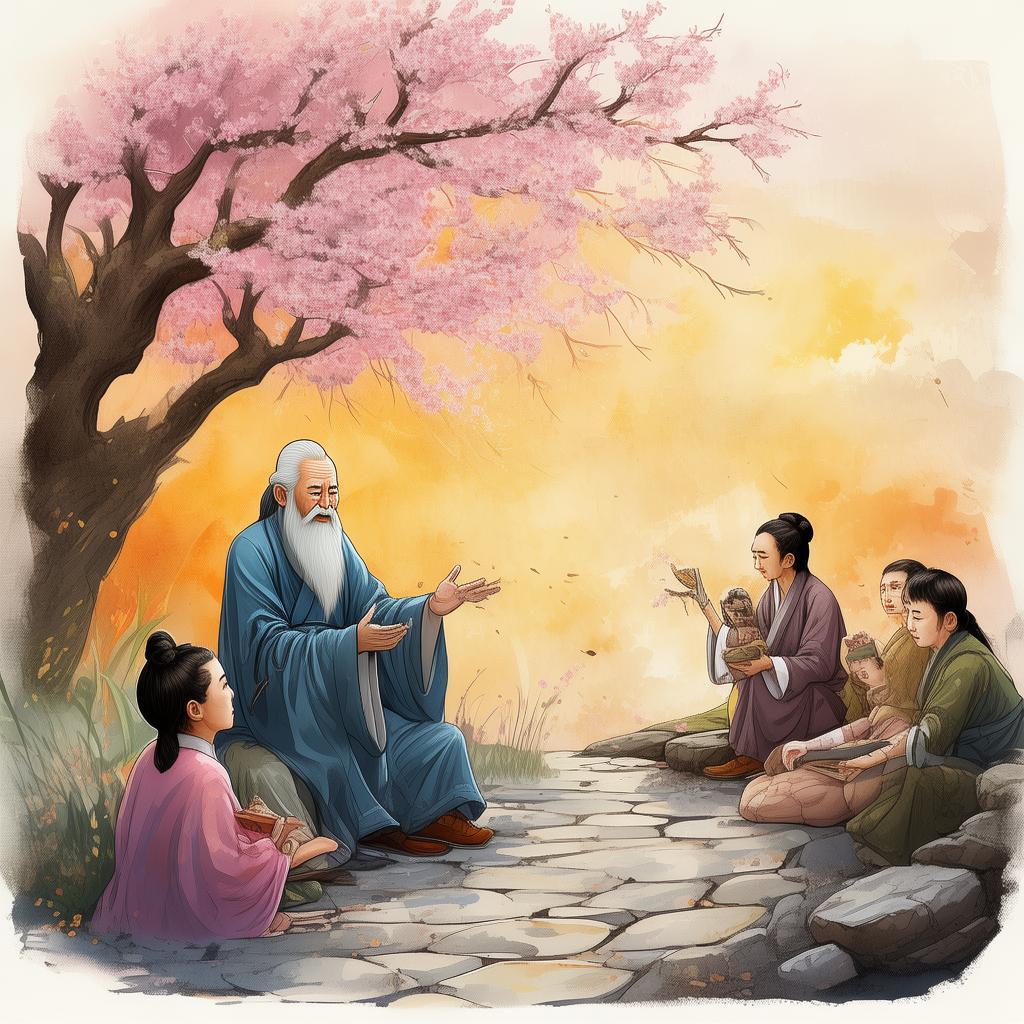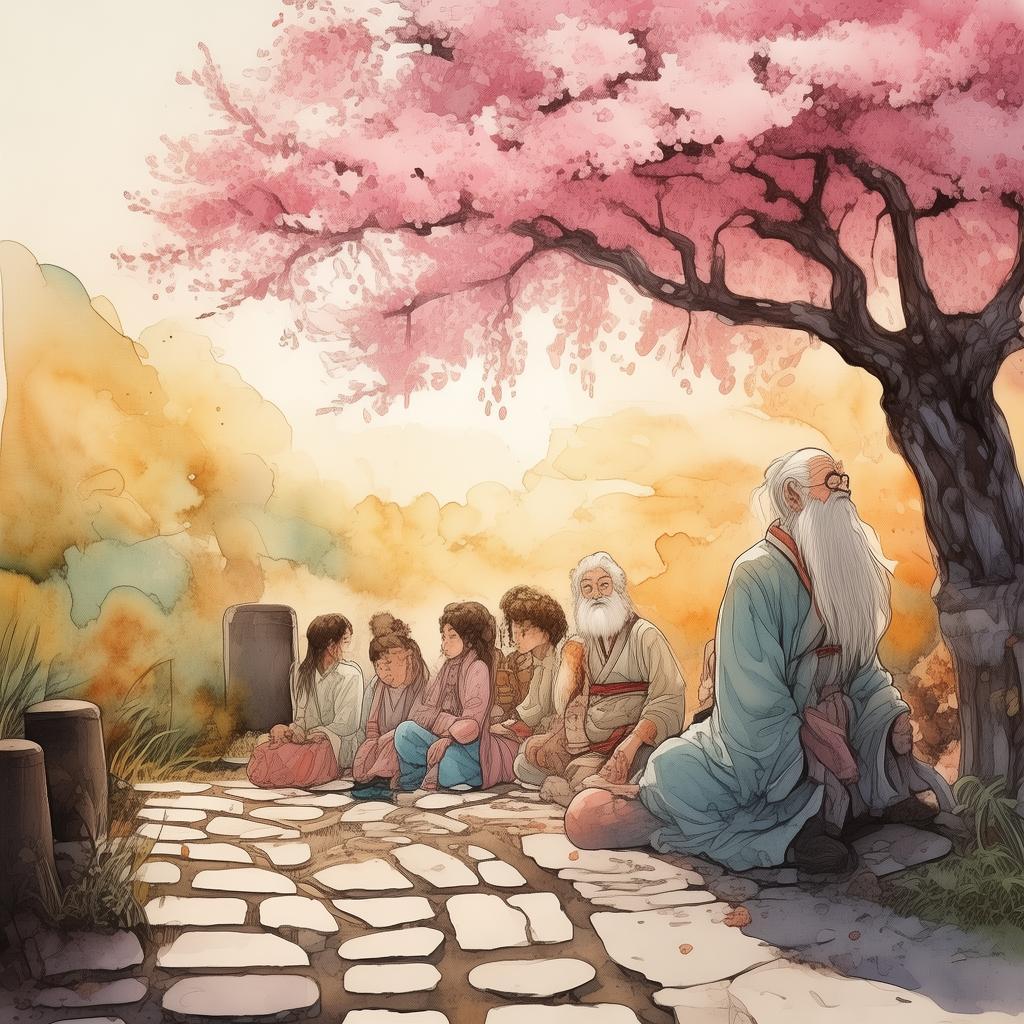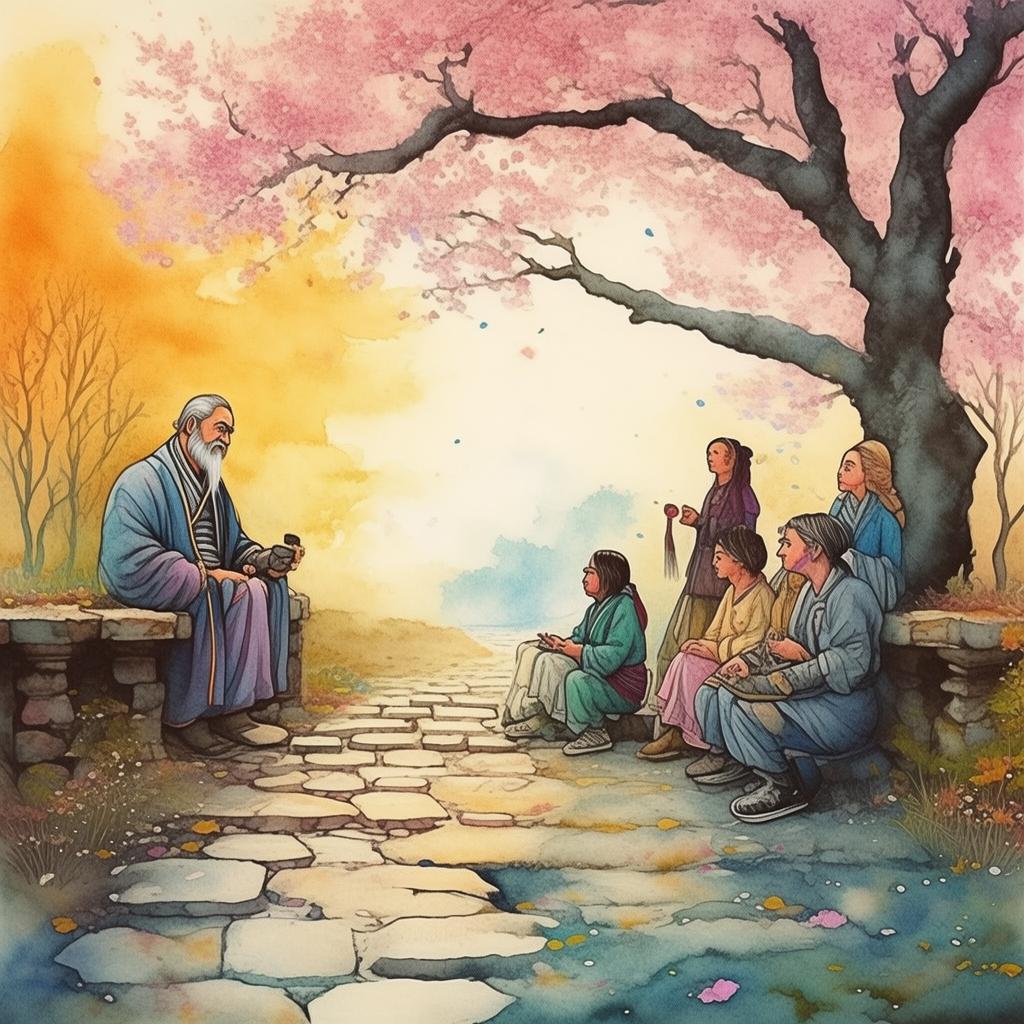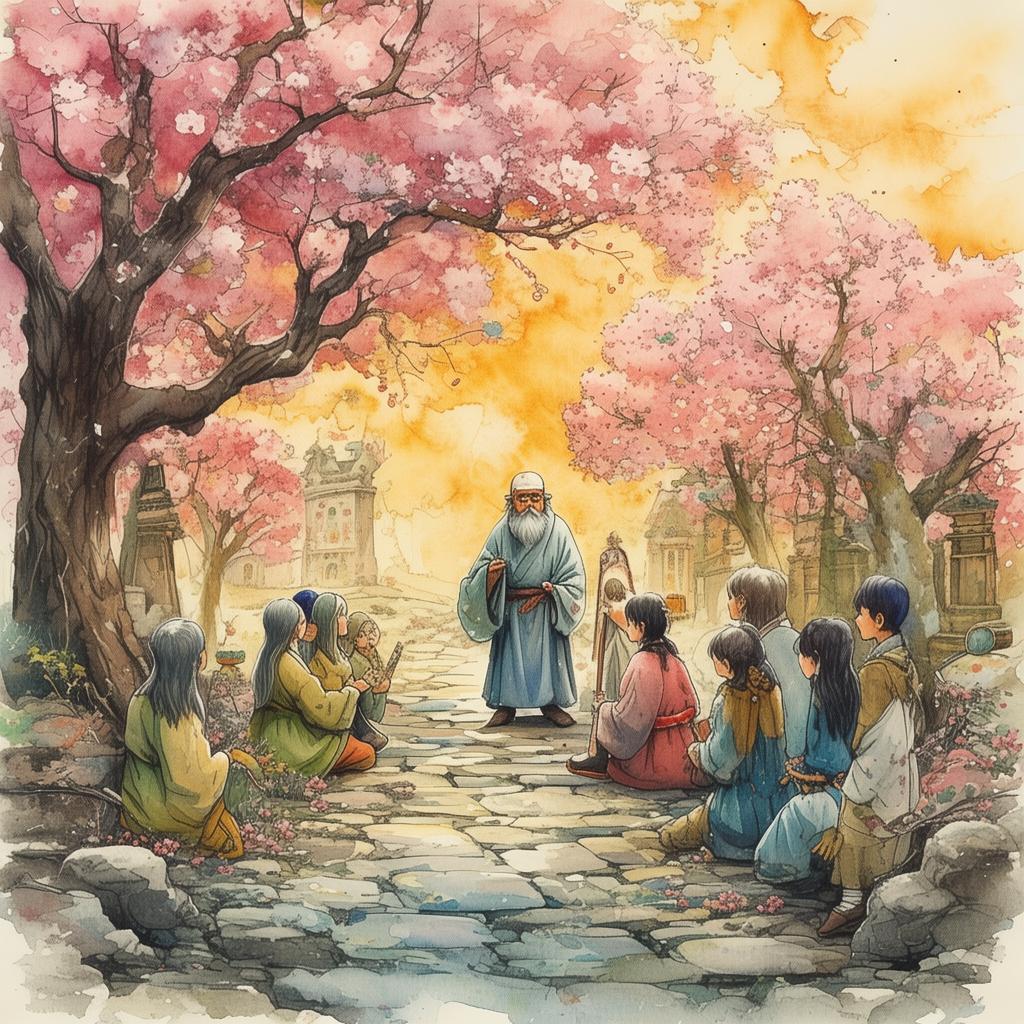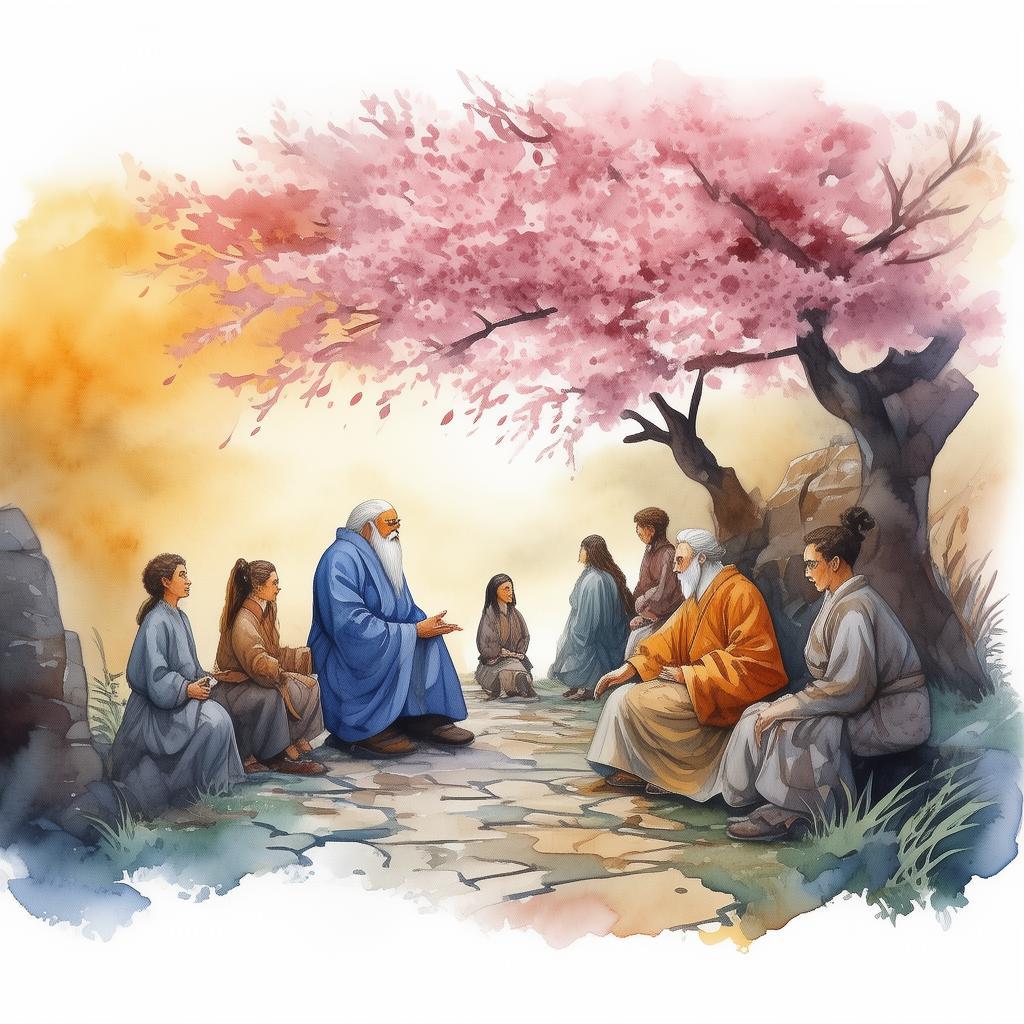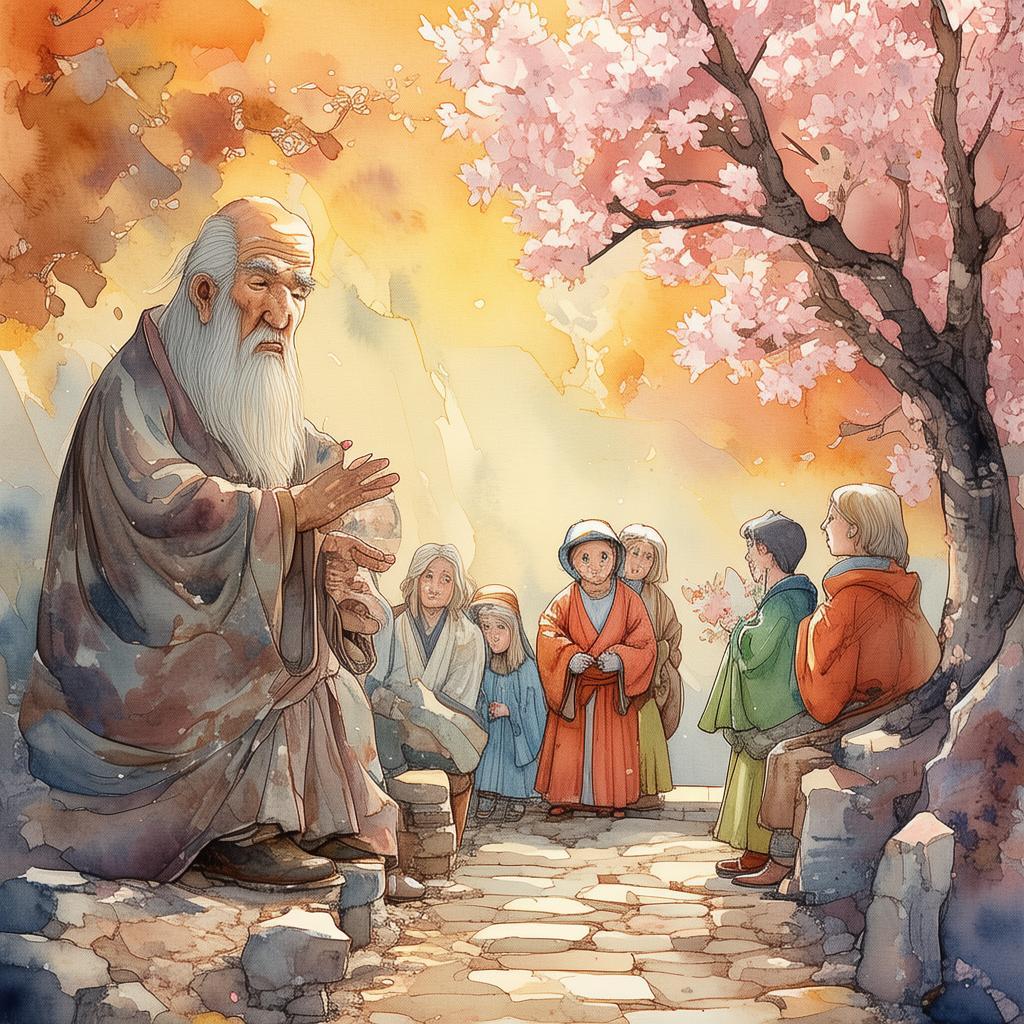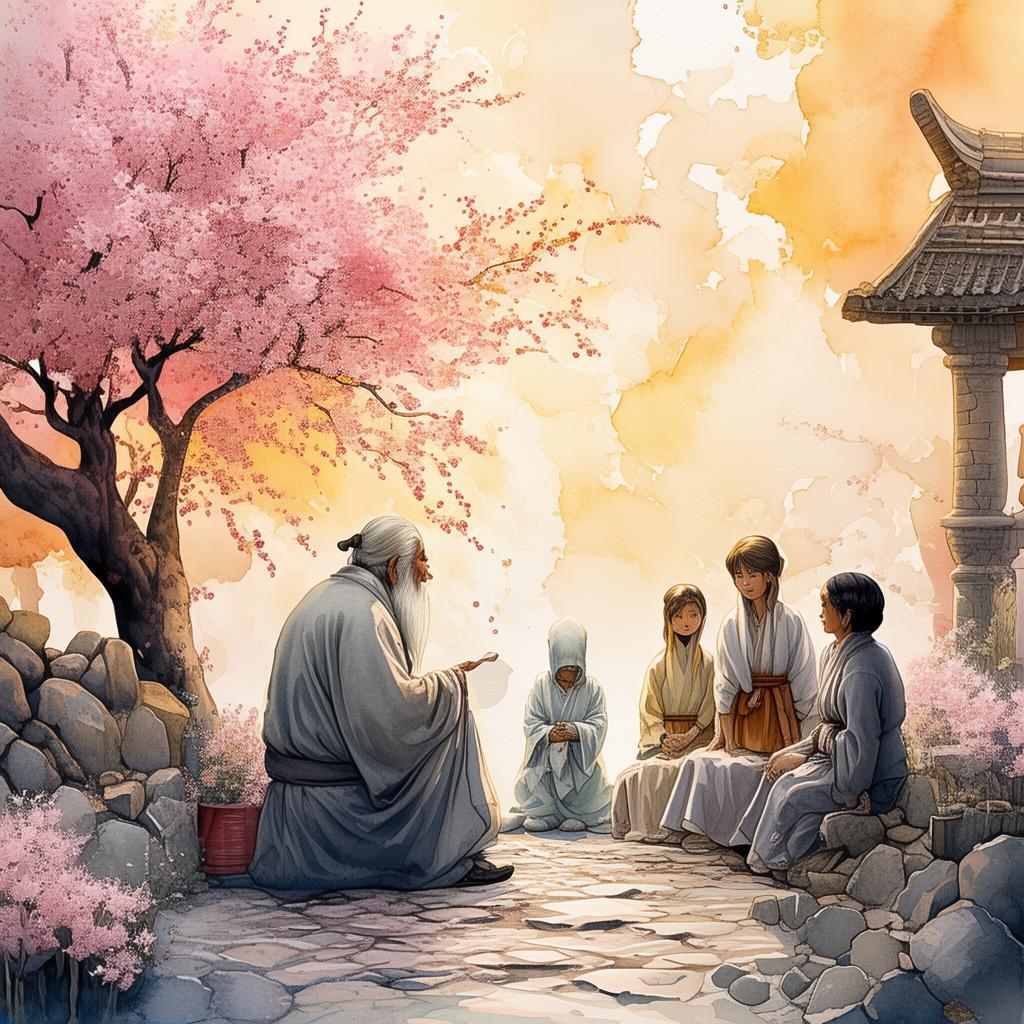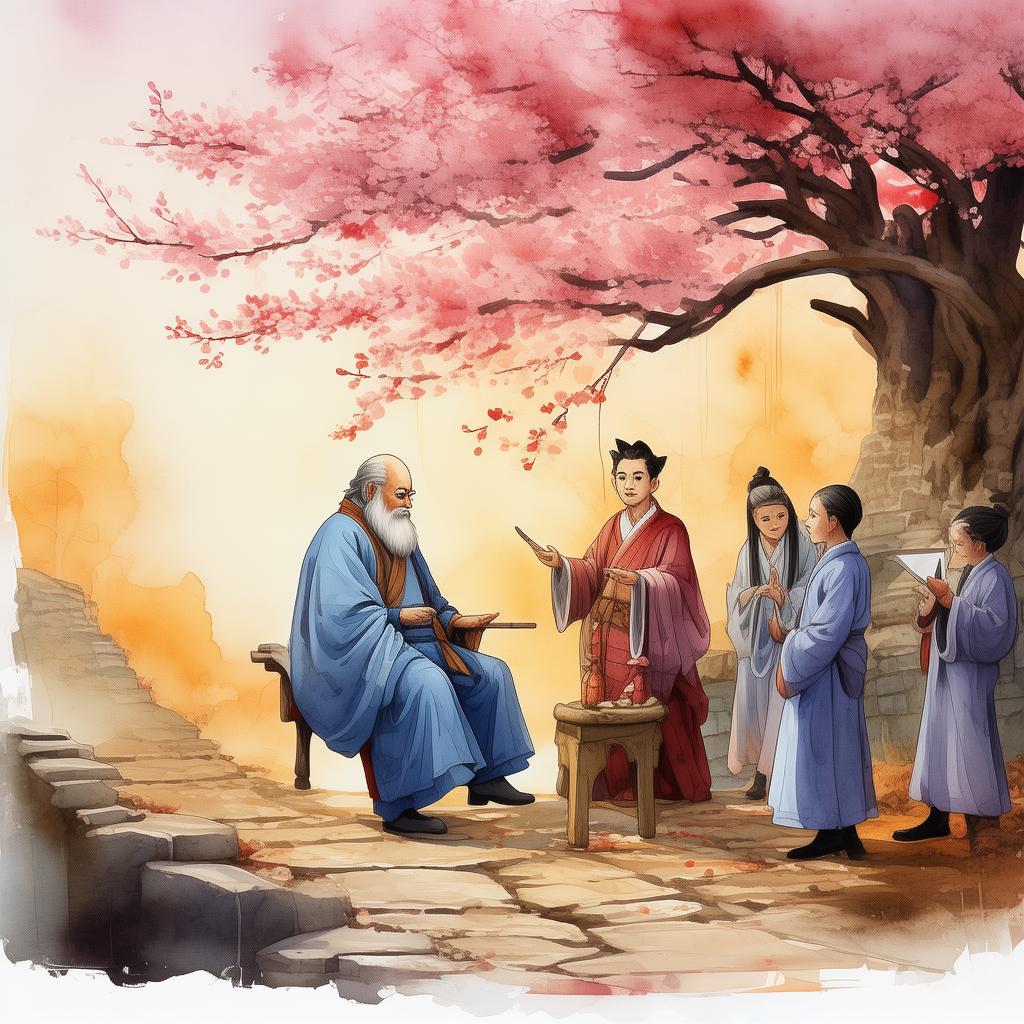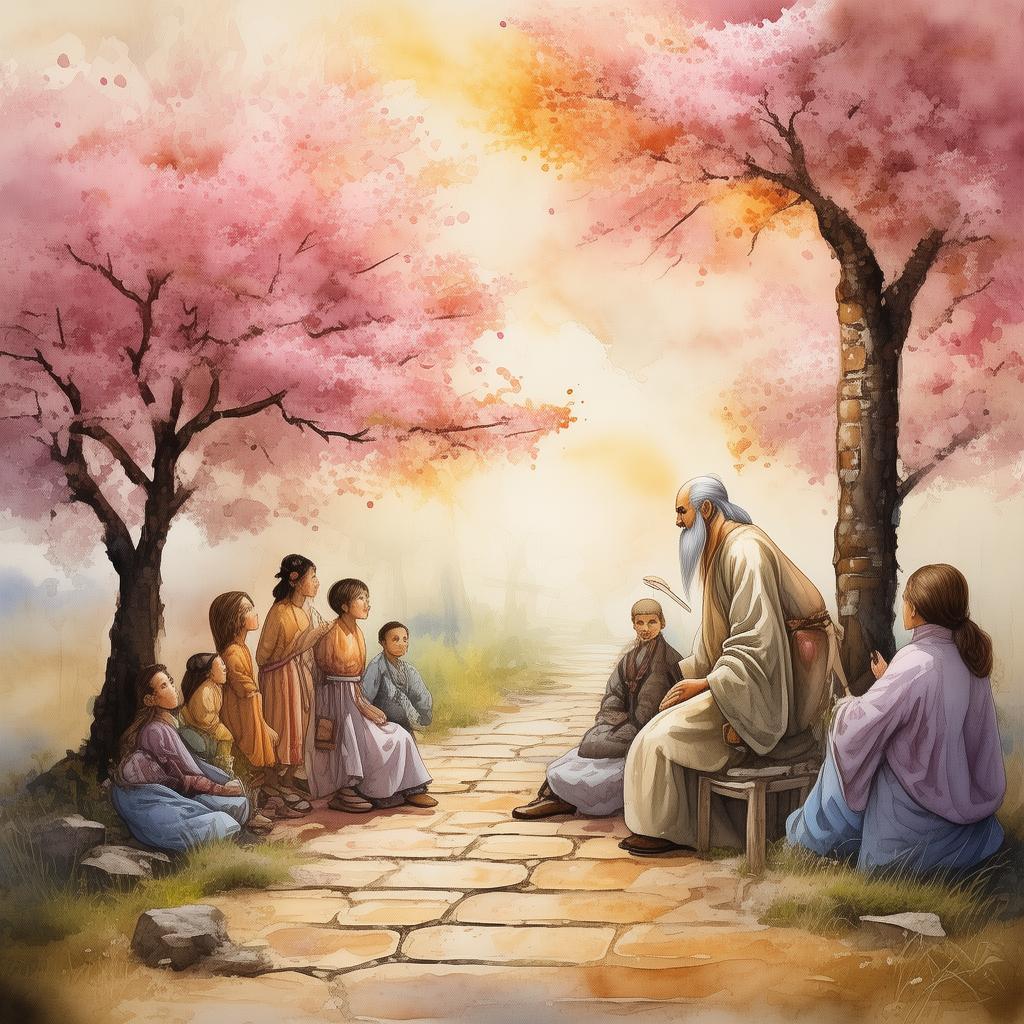The Labyrinth of Wisdom: A Quest for the Paradox's Heart
In the heart of ancient Theoria, a city renowned for its scholars and sages, lived a young philosopher named Aelius. He was known throughout the land for his sharp wit and deep understanding of the world's complexities. Aelius had one burning ambition: to unravel the mysteries of life itself, a quest that had led him to the threshold of The Philosophical Paradox, a collection of 104 proverbs that, according to legend, held the key to understanding the very fabric of reality.
One moonlit night, as the city's lamps flickered in the distance, Aelius stood before the labyrinth, its towering walls casting long shadows in the moonlight. The labyrinth was a place of legend, said to be woven from the threads of time and woven by the hands of fate itself. It was here that the Paradox's Heart lay hidden, a truth so profound that it could change the very nature of existence.
The labyrinth was more than just a physical structure; it was a representation of the mind itself, with every twist and turn reflecting a different aspect of thought. Aelius knew that to find the Paradox's Heart, he must navigate the labyrinth's many challenges, each designed to test his understanding of the world's paradoxes.
The first chamber he entered was a room filled with mirrors, each reflecting the same scene, yet none revealing the path forward. Aelius pondered the paradox: How can there be a path when there is no difference between the mirrors? He realized that the answer lay in recognizing the unity in diversity. The mirrors were all the same, yet each one was unique, and it was their unity that allowed them to reflect the same scene. With this insight, Aelius stepped forward, and the path opened.
Next, he came upon a chamber with two doors, each marked with a different proverb: "The truth is hidden in plain sight" and "The truth is only visible in the shadows." Aelius paused, considering the paradox: Can the truth be both hidden and visible at the same time? He reflected on the nature of truth and realized that it is often hidden because it is too obvious, and visible because it is hidden in plain sight. He chose the door marked with the proverb that spoke to his heart.
As he continued, Aelius encountered more paradoxes, each one testing his understanding of life's contradictions. The labyrinth was a maze of questions: Is change inevitable or does it require effort? Can a thing be both one and many? What is the nature of free will?
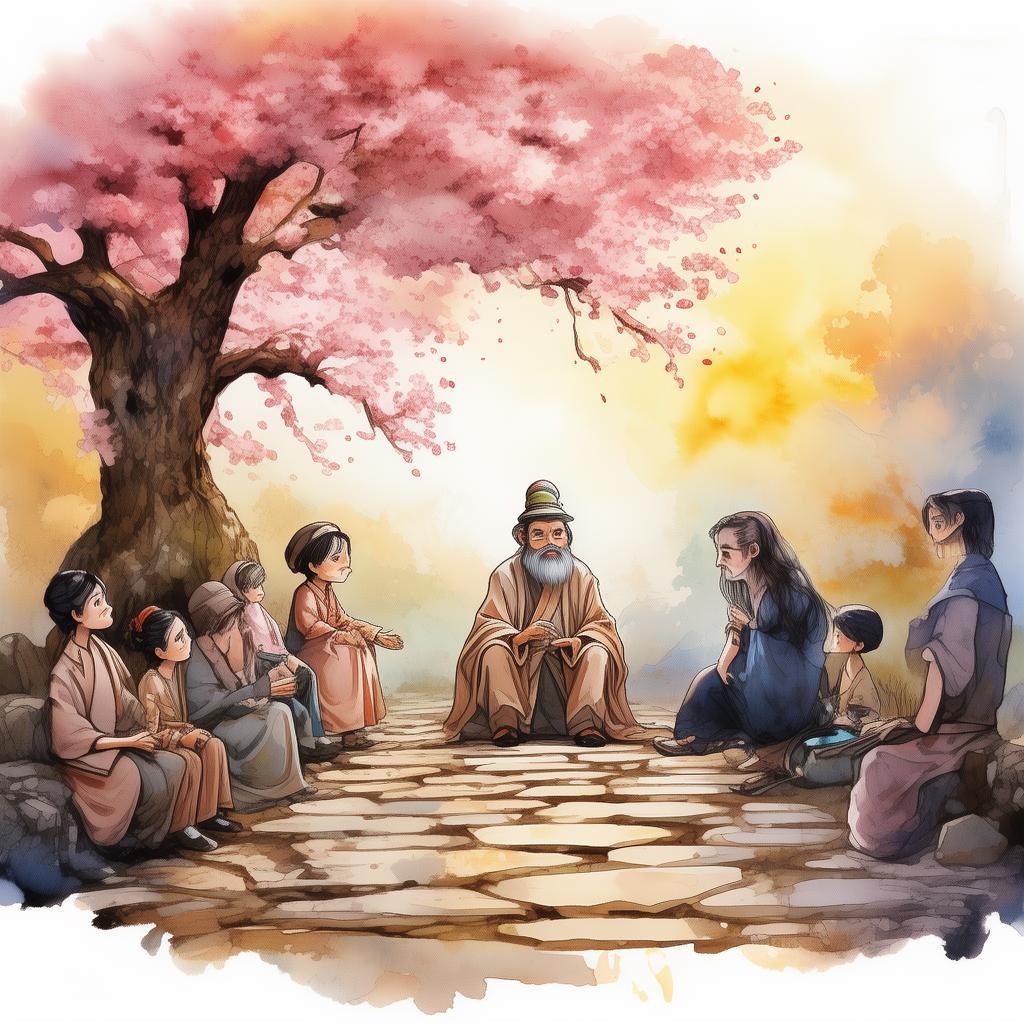
Each paradox brought him closer to understanding the Paradox's Heart, but it was the final chamber that truly tested his resolve. The room was filled with statues of philosophers, each frozen in time, their eyes wide with the realization of the paradox they had been studying. In the center stood a single, unadorned pedestal, and at its base was a single word: "Paradox."
Aelius approached the pedestal, and the room seemed to hold its breath. The word "Paradox" shimmered with an otherworldly glow, and Aelius felt a deep connection to it. He realized that the Paradox's Heart was not a single truth, but the very essence of contradiction itself. It was the recognition that life is a tapestry of paradoxes, and in understanding these contradictions, one could find the truth of existence.
As Aelius placed his hand on the pedestal, the room around him seemed to dissolve, and he was enveloped in a blinding light. When it faded, he found himself back at the entrance of the labyrinth, but now, he knew that he had been there all along. The labyrinth was not a physical place, but a metaphor for the mind's journey toward understanding.
Aelius returned to Theoria, his mind transformed. He shared his experiences with the scholars, and their understanding of the world was forever changed. The Philosophical Paradox, once a collection of cryptic proverbs, now held a new significance, a beacon of light in the darkness of human thought.
The story of Aelius and the Paradox's Heart spread far and wide, becoming a legend that inspired generations to seek the wisdom hidden within life's paradoxes. And so, the quest for knowledge continued, ever more profound and mysterious, as the labyrinth of wisdom remained open to all who dared to enter.
✨ Original Statement ✨
All articles published on this website (including but not limited to text, images, videos, and other content) are original or authorized for reposting and are protected by relevant laws. Without the explicit written permission of this website, no individual or organization may copy, modify, repost, or use the content for commercial purposes.
If you need to quote or cooperate, please contact this site for authorization. We reserve the right to pursue legal responsibility for any unauthorized use.
Hereby declared.
